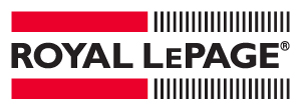Title insurance explained
What is title insurance? Do you need it? Here’s some information that can help you make an informed decision.
What does "title to property" mean?
Title is the legal term for ownership of property. Buyers want "good and marketable" title to a property. "Good title" means title appropriate for the buyer’s purposes; "marketable title" means title the buyer can convey to someone else.
Why do I need title insurance?
Prior to closing, public records are searched to determine the previous ownership of the property, as well as prior dealings related to it. The search might reveal existing mortgages, liens for outstanding taxes, utility charges, etc., registered against the property. At closing, the buyer expects property that is free of such claims.
Sometimes problems regarding title are not discovered before closing. They can make the property less marketable when the buyer subsequently sells, and can cost money to fix. For example, the survey might have failed to show that a dock and boathouse built on a river adjoining a vacation property was built without permission. The buyer of the property could be out-of-pocket if he is later forced to remove the dock and boathouse. Or, the property might have been conveyed to a previous owner fraudulently, in which case there is the risk that the real owner may come forward at some point and demand their rights with respect to the property.
Who is protected with title insurance?
Title insurance policies can be issued in favour of a purchaser, a lender, or both. Lenders will sometimes require title insurance as a condition of making the loan. Title insurance protects purchasers and/or lenders against loss or damage sustained if a claim that is covered under the terms of the policy is made.
Types of risks that are usually covered include:
- survey irregularities
- forced removal of existing structures
- claims due to fraud, forgery or duress
- unregistered easements and rights-of-way
- lack of pedestrian or vehicular access to the property
- work orders
- zoning
- set back non-compliance or deficiencies, etc.
For a risk to be covered, it has to have existed as of the date of the policy. As with any type of insurance policy, certain types of risks might not be covered. For example, native land claims and environmental hazards are normally excluded. Be sure to talk to your lawyer about the types of risks that may not be included in your policy.
The insured purchaser is protected against actual loss or damage sustained up to the amount of the policy, which is based on the purchase price. As well, some policies have inflation coverage, which means that if the fair market value of the property increases, the policy amount will also increase.
How long will I be covered?
Title insurance remains in effect as long as the insured purchaser has title to the land. Some policies also protect those who received title as a result of the purchaser’s death, or certain family members (e.g., a spouse or children) to whom the property may have been transferred for a nominal amount.
The premium for title insurance is paid once, at the time of purchase. In Canada, the purchaser generally pays for the title insurance, though there can be situations where the seller pays for it.
Protection and peace of mind
Title insurance can help ensure that a closing is not delayed due to defects in title. And if an issue arises, the title insurance covers the legal fees and expenses associated with defending the title and pays in the event of loss.

